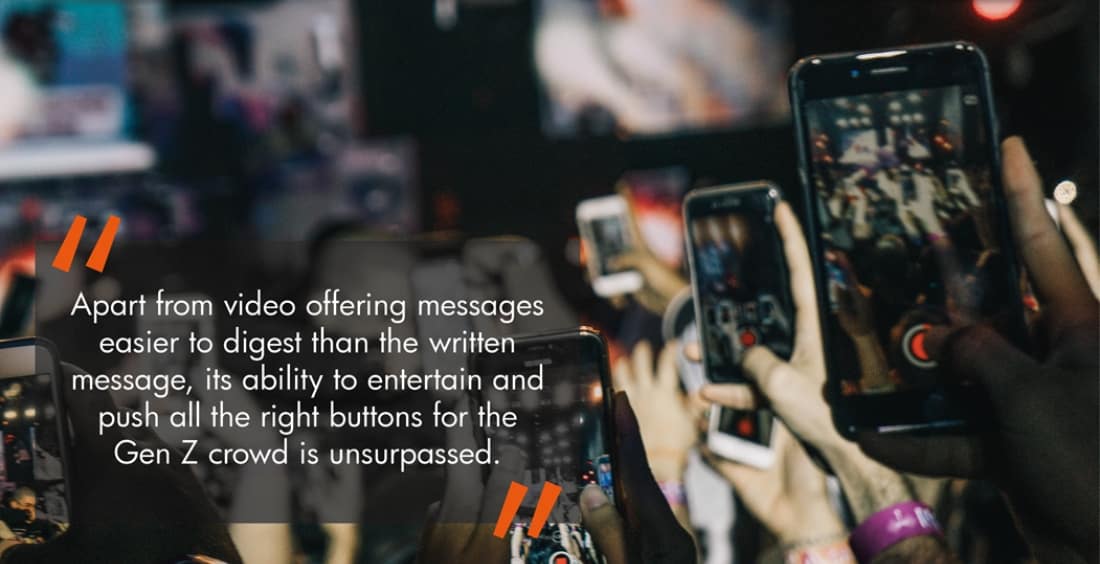Journal of Strategic Marketing Newsletter – February 2020
Journal of Strategic Marketing Newsletter – February 2020
The world of reality has its limits; the world of imagination is boundless – Jean-Jacques Rousseau. Set your IMMagination free.
Start your career, or if you are already working, boost your career with a leading internationally recognised qualification
from the IMM Graduate School. Applications for 2020 close on 29 February!
Tick tock if you don’t understand TikTok
Much loved by teens and young adults, but not really understood by a less-youthful cohort, TikTok is redefining short-form video. Still, it has four different ad formats – brand takeover, infeed native video, hashtag challenge and branded lenses – and is therefore a legit channel to be explored by marketers. With over a billion downloads and counting, TikTok should be on the marketing radar in 2020.
Data, data and more data
Christopher Penn, co-founder and chief data scientist at Trust Insights, has created a six-C framework on how to assess what data is valuable.
- Clean: Free from errors
- Complete: Not missing critical parts
- Comprehensive: Answers the questions asked of it
- Chosen: Does not contain irrelevant information
- Credible: Collected with as little bias as possible from reliable sources
- Calculable: Usable by both people and machines
Nielsen’s view on the hemp and CBD marketplace in 2020
Nielsen believes that brands, marketers and consumers will have a big appetite for data and information about cannabis in 2020, and has taken a look into what a “cannabis-rich consumer packaged goods (CPG) landscape could look like”.
“We project that the US hemp-based CBD market could be a $2.25 billion to $2.75 billion industry in 2020. These conservative projections already account for hampered Food and Drug Administration rulings and other possible speed bumps for the hemp-CBD marketplace,” said Rich Maturo, vice president of Nielsen’s Cannabis Practice. Maturo reckons he next decade for the hemp-based CBD market “has the potential to be a game changer for the traditional CPG and retail industry”.
CMOs must adapt or die
Adverty’s Alex Igelsböck, writing for WARC, believes rumours of the death of chief marketing officers have been much exaggerated. Especially as Coca-Cola has resurrected the role after killing it back in 2017. Nevertheless, he reckons, CMOs will continue their “fight for relevancy” in 2020, and if they don’t adapt to changing circumstances, might well die.
The CMO species, he says, “is at a critical point where the ability to change could make the difference between survival and extinction. It is still a vital and viable role if CMOs can adapt and adjust to the new demands of the industry”.
They should:
- Collaborate across the C-suite
- Share insight throughout the business
- Align KPIs between departments
And, he adds, “CMOs must take the lead in centralising data management, using marketing intelligence techniques to collect, organise and manage data”.
BE AWARE! New comms Code for alcohol industry launched
Aware.org, the Association for Alcohol Responsibility and Education, is getting ahead of government’s controversial policy document on alcohol advertising and suggested amendments to current regulations. It has launched a Code for Commercial Communications, which represents a firm commitment by the members of aware.org to maintain high standards of responsibility and ethical conduct in all commercial communication activities, which will demonstrate that the industry believes in marketing for change.
“Through the Code, we aim to encourage the best creative minds in the country, both agencies and marketers, to become world leaders in the responsible marketing arena,” said Ingrid Louw, CEO of aware.org. “The Code is the industry standard that we can and must live by.” The Code can be downloaded here.


